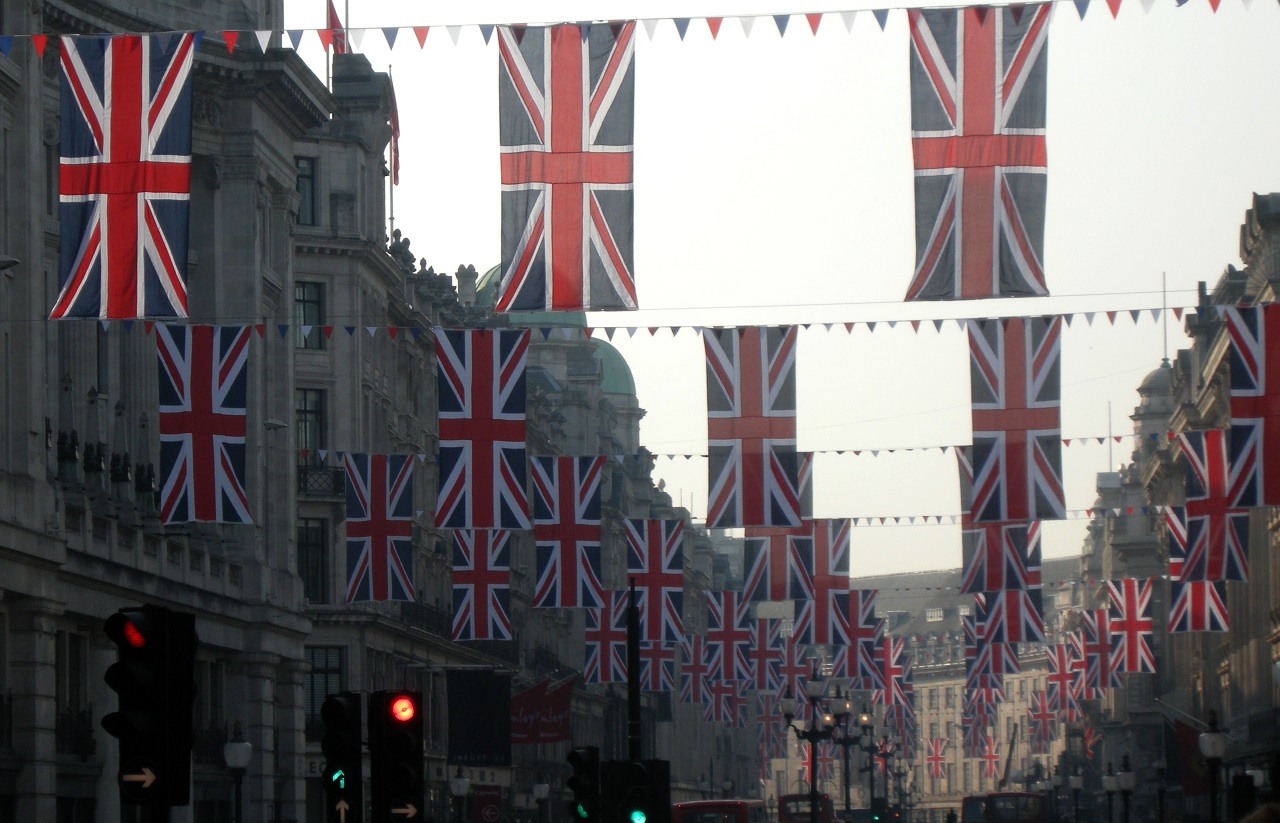Dr. Michael Skey argues that it is time to stop name calling and try to reach a better understanding of people’s attitudes to belonging, home, territory and migration.
UKIP’s gains in recent local and European elections have highlighted some of the deep divides that exist in Britain and, in particular, England where the party attracts the majority of its support. While Farage’s party have made substantial gains in the north and south of England, it is noticeable that their support wanes dramatically in urban areas and nowhere more so than in London. The relationship between the capital and the rest of the country has been discussed a great deal in recent times, with a particular focus on the economic and political spheres. In the former, case London has become the economic powerhouse of Britain but while the city makes an impressive contribution to overall tax revenues, it also drains talent and business from other parts of the country. Likewise, the politics of Westminster is seen to be increasingly in-ward looking, leading to resentment in the other regions of England and growing calls for independence in Scotland and Wales. However, London also stands at the heart of a deep cultural divide not only in terms of the actual diversity of its population but also how different groups perceive the capital’s heterogeneity.
On the one hand, we find those who celebrate the London’s diverse population arguing that it represents the archetypal global city: progressive, dynamic and tolerant. The perfect example of this was in the marketing of capital during the Olympics with the organising committee, claiming that ‘diversity was a key reason why London, one of the most multicultural cities in the world, was chosen to host the Games in the bidding process’. This diversity is also welcomed by many of those living in London, from affluent, upwardly-mobile groups who enjoy the sights, sounds, tastes and performances that the city’s vibrant cultural mix offers, to members of ethnic minorities who feel more secure in a heterogeneous socio-cultural environment. The following quote, which comes from a young Londoner writing in The Guardian, is a typical example of the latter;
My experience is of an emphasised appreciation for the advantages of diverse, tolerant and cohesive communities. I have friends from a range of ethnicities, religions and backgrounds. Any differences between us don’t tend to run along any of those lines. I take pride in the fact that where I live, go to school and work are not places dominated by a single group of people, but host a pretty harmonious mix’ (Sarkodee-Adoo, 2012)
This type of view, which can also be found in academic work on the topic (Back, 1996, Leddy-Owen, 2012, Leurs, 2014), points to the complex ways in which people negotiate their place within a particular society, feeling comfortable in some settings but awkward and conspicuous in others. For instance, the nod to the lack of a dominant group in London also acknowledges the more precarious position that ethnic minorities occupy within the wider national community, which in England and other European countries has tended to privilege whiteness as the key marker of belonging.
But while these types of views are significant, not least in showing how young people, in particular, engage with ethnic diversity as a matter of course, we cannot also ignore the fact that London is perceived by other groups living in the UK in very different ways. After carrying out research among the ethnic majority in England, I identified a number of different strands in the way that people discussed the diversity of London’s population. First, London was perceived to be an exciting, and somewhat daunting, place to visit because it was so large and busy but also very different from what people were normally used to. The following example comes from a group of college students living in the south-west of England, near Bristol.
In London you get a chance to meet people from all walks of life, and like, learn about other stuff whereas around here it is really quite sheltered, I guess (emphasis added, Cirencester Group)
The notable feature in this statement is the comparison that is made between London and ‘here’, where the absence of ‘other’ people whose ‘stuff’ can be learnt about is actually lamented. It’s also worth noting that the this lack of opportunity is defined in terms of safety, with more homogeneous parts of England, such as the south-west, labelled as ‘sheltered’. This idea of shelter or safety also feeds into two of the others strands, which view the presence of others as not so much an opportunity as a threat.
The first example comes from an interview with a group of middle-aged people living in Taunton in the far south-west of England. Many of the group had moved to this area from London, where they’d lived most of their lives. As well as discussing their desire to move to a quieter area they also bemoaned the changing nature of the local population, focusing on the growing presence of non-white outsiders.
A: And, I walk, I walk down the street where my mother lives and she doesn’t like to walk out because there’s, there’s, it, it’s getting like small, someone mentioned a small bit of Bengal, a small area of, of a, of a ghetto where my mother’s the only white person in that road now, which isn’t, she hasn’t got a real problem with it, but it’s the way it’s done ….
D: No, that’s right.
A: … leaning on the fence outside where people were reserved and, and, and there’s rubbish everywhere and, y’know, whose fault is it? Is it their fault, our fault?
M: Well, it is where I used to live, where I used to live in .. uh .. in West London, where my parents lived and I was, y’know, a kid. It, it, it is now massively just Indian and Pakistani and there isn’t a white man in, on the street, you just don’t, if you drive through the place, and so there’s no way that that’s going to work.
D: No.
S: We’ve all come out …
This phenomenon, first labelled as ‘white flight’ in relation to the movement of whites out of urban areas in the US, has also been tracked by a number of researchers in England. However, while much of the qualitative data points to concerns over changing demographics, generally discussed in relation to ethnic diversity (Watt, 2006, 2009), quantitative studies show that it’s not always easy to disentangle these ‘push’ factors from other ‘pull’ factors, such as better housing, schools or public spaces, when trying to identify the underlying reasons for these moves. Indeed, recent work by Eric Kaufmann and his colleagues argues that these moves away from ‘diverse’ areas may be more about class preferences than concerns about ethnicity (Kaufmann, 2012).
The third stand relates to the views of those who have never lived in London and only visit the city sporadically, if at all. To them the capital was a strange and threatening place and their anxieties primarily centred on the presence of racialised ‘others’ and, in particular, Muslims. The following example comes from a group of working-class men living in Middlesbrough in the north-east of England:
B: I’ll tell you what, what it is, is happening, round here, what this area you’re in now is like Midtown, like, that is where we live right, you will never get a take-over of what they have in London.
A: You will, you will.
B: You won’t. We won’t allow it.
D: I don’t think we will either.
While this group expressed the most hostile attitudes towards immigration, often conflating migrants with ethnic minorities, their anxieties over the presence of perceived ‘others’ were not uncommon among those that I talked to and are also borne out by wider survey data. When trying to make sense of these types of expressions, it’s only too easy to dismiss them as racist and adopt a morally superior position to those that put them forward. However, this doesn’t really tell us that much about these types of pronouncements or, indeed, the people that make them. Before, I continue, let me state that this isn’t an attempt to condone racist views. But as the sociologist Les Back has argued, rather than simply noting that racism is bad or wrong, we also need to examine what these kind of racist categorisations are being used for in relation to this topic. After all, most people are aware, and generally agree when asked, that racism is wrong, so why is it that they continue to use racial categories to make sense of this issue and what might this say about their own identity and status in the contemporary era?
First, there is a problem in simply categorising such views as racist, as they are as much about spatial management and the importance of the nation as they are about race. For instance, it is very unlikely that the groups identified as a problem in the above extracts would be of interest to the interviewees if they lived in India or Pakistan. People leaning on fences or throwing rubbish (or the common litany of complaints that get directed at migrants or minority groups) aren’t generally an issue so long as they’re doing it somewhere that isn’t ‘here’. Likewise, UKIP supporters by and large don’t care about the number of Romanians in Romania or Poles in Poland.
In other words, ‘their’ presence is only defined as a problem when it impacts on ‘our’ way of life and, furthermore, this problem can only be identified within a bounded territory. Therefore, these tirades are better seen as the outcome of nationalist ways of understanding the world even if they involve racist categories or hierarchies (SeeHage, 1998 for a more detailed overview of this argument). And just to clarify, these ‘ways of understanding’ would include the following; the world is (and should be) divided up into discrete, and bounded, cultural and political units (otherwise known as nations), that each person should belong to one of these units, that said belonging will have some impact on how the individual will think and act and also leads to certain responsibilities and entitlements.
This leads on to a second point, which is the reason why people care so passionately about the movement of particular groups and what this tells us about who they are and what they value. Simply put this is about the rights of certain people to not only access particular material resources (jobs, housing, healthcare) but also to feel comfortable and secure in a place that they consider to be ‘theirs’. In the latter case, part of this comfort and security comes from having basic expectations met in relation to a whole host of everyday features: whom one might encounter, the kind of things they might say and do, the organisation of the physical and social environment, the kinds of products available in shops and so on. Now, this isn’t to suggest that people are unable to deal with experiences that breach these background expectations; most do it on a fairly regular basis and many actively search out such encounters at least for limited periods – holidays being the most obvious example. It’s merely to observe that when these ‘breaches’ lead to disorientation or the feeling that one is no longer in control, then this can generate a very powerful response and a desire to reinstate what has been ‘lost’.
There is, then, in many of these discussions the sense of a line that should not be crossed. This is the idea, and I heard it time and time again, that some degree of difference is permitted, even welcomed, provided it doesn’t threaten the status and position of those who claim to belong at the heart of national life. In relation to migration it hinges on the question of ‘how many’ and the right of those who belong more than others to decide who should be allowed in and how they should behave. But it also explains the somewhat puzzling and often contradictory attitudes that many express when wrestling with these issues. Such contradictions include people who at one point speak warmly of having colleagues, friends, family, lovers, even husbands and wives, who happen to be from a particular social group. At another moment, the same individuals lambast this group, now transformed into a seething, threatening and, above all, homogenous mass, for taking over an area, causing social problems and so on.
And this leads us back to the perceived ‘problem’ of London for many people, perhaps most recently summed up by Nigel Farage’s lament for the sound of the English language on public transport. Again, this is a question of who has the right to feel in control and comfortable in a given place and for many it is still the nation, for all its imperfections, that offers a key sense of self, community ad security in the contemporary era. And while UKIP might be the most obvious manifestation of this, current survey data actually tells us that the majority of people in England would like to see migration controlled, including those from ethnic minorities.
There are no easy answers here. One might, of course, argue that the left needs to do more to focus on those who push neo-liberal agendas and to identify them, rather than poor immigrants, as being primarily responsible for generating the ongoing change and uncertainty that so many rail against. But even if we don’t agree with people’s views and, in some cases, find them reprehensible, simply caricaturing them as xenophobes or racists is deeply problematic. First, it overlooks the complexity of everyday lives and the ways in which everyone struggles to make them viable and meaningful, sometimes by excluding perceived ‘others’ and sometimes by welcoming them. By dismissing others as backward or unsophisticated, it’s all too easy to forget our own failings and also how these processes of categorisation can be used to bolster ‘our’ own fragile selves. Second, if the aim is to engage with people and convince them of the value of our own views or political programme, calling them names or sneering at ‘them’ doesn’t seem like much of an achievement.
Dr. Michael Skey is a lecturer in Media & Culture at the University of East Anglia and author of the 2012 book, National Belonging and Everyday Life. This post originally appeared on Open Democracy.
Photo credit: dgjones





